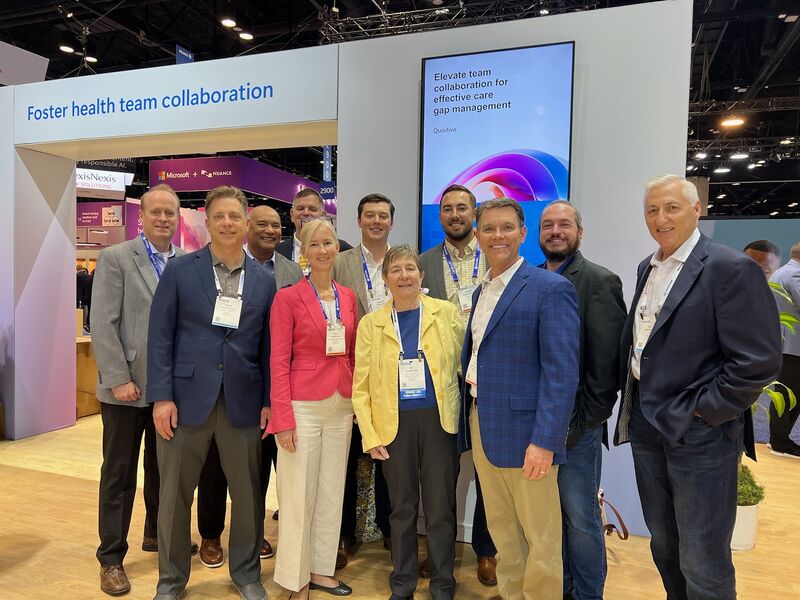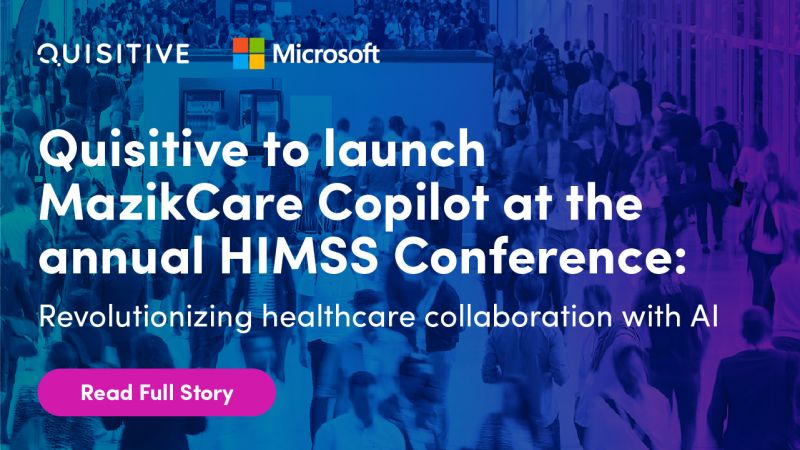Time is crucial in healthcare, where every delay can significantly impact a patient’s experience and recovery. Effective care coordination ensures that patients receive the right care at the right time. To achieve this, physicians, providers, patients, and other stakeholders need to communicate efficiently to convey critical healthcare information and take necessary actions.
There is growing interest in quality care coordination, with healthcare trends shifting away from conventional fee-for-service (FFS) models towards value-based care, which prioritizes patient outcomes and cost savings. Technological advancements like AI and machine learning provide healthcare providers with tools to fine-tune and automate information for more effective management of patient needs.
However, despite the benefits of technologically advanced coordination solutions, healthcare teams may still cling to outdated systems and processes due to the technical complexities involved.
Let’s explore the common pain points of digital transformation in healthcare and effective ways to overcome them with intuitive software solutions.
Communication
Care coordination involves multiple parties, including specialists, healthcare staff at various organizations, diagnostic technicians, patients, and payers. Undisrupted communication between all parties is crucial for maintaining high standards of value-based healthcare. Unfortunately, healthcare teams may still rely on legacy communication channels, such as faxing, which can cause significant delays for patients seeking urgent care and treatment.
Test Result Tracking
While mainstream technology allows for real-time tracking of food deliveries and parcels, many healthcare settings lack real-time monitoring for patient test results, despite their impact on a patient’s quality of care. Patients and caregivers often experience lengthy wait times to receive test results particularly when performed by an outside organization, affecting their lifestyle and healthcare planning. Poor care coordination has also resulted in patient-reported adverse events, such as inaccurate test findings among diabetes patients.
Data Security
Healthcare data security is a complex process with risks, such as improper handling of electronic health records and widespread ransomware attacks that have resulted in losses of over $30 billion.
Rapid changes in data security standards and practices make it challenging for healthcare providers to safeguard their data networks, especially when combined with the ongoing challenges of meeting the latest healthcare compliances rules. A compromised healthcare database poses a serious security issue, as leaked data can undermine the confidentiality of medical history and payment details , which cybercriminals can manipulate or steal for ransom.
The Rise of AI and Machine Learning Opportunities
AI and machine learning have emerged as powerful solutions for enhancing productivity across industries, including care coordination in healthcare.
The dynamic functions of these technologies can reduce human error and expedite repetitive procedures, such as appointment scheduling, patient follow-ups, prior authorization, and referral management, thereby boosting care coordination efforts. Market experts predict that the global AI what? Investment? in healthcare market will reach $188 billion by the end of the decade, with a compound annual growth rate (CAGR) of 37%.
Providing Accurate Data Analytics and Tracking
The robust mechanisms of AI enable teams to consistently monitor patient needs and emergencies throughout their care and treatment by using advanced algorithms gleam exceptions and abnormalities. Healthcare facilities can analyze large databases of electronic health records (EHRs) and quickly notify relevant specialists and providers about patient needs without manually going through all the details.
Optimizing Care Management
The practical implementation of care management remains a challenge for healthcare experts. AI’s organized collection and distribution of health records information can simplify care management processes in complex and stressful environments, facilitating value-based healthcare.
Securing Healthcare Data
Modern care coordination platforms, like MazikCare, offer added protection through a combination of techniques, such as encryption technology and ML methods like federated learning (FL), which train algorithms without exposing sensitive information.
Care Coordination of the Future
Quisitive’s MazikCare Care Coordination platform equips healthcare teams with the tools needed to streamline communications and data management from a unified source. MazikCare establishes a digital bridge between patients and healthcare staff, enabling the highest level of care and service at every stage.
MazikCare drives optimized care coordination in a simple and accessible way through a two-pronged approach: integrating team collaborations and empowering patients.
Unified Teamwork
The MazikCare platform provides a sleek user experience that connects physicians, patients, and payers through highly intuitive dashboards and portals. MazikCare allows teams to manage all types of care management and staff scheduling, keeping every involved party well-informed of the latest changes.
Unrivaled Patient Support
MazikCare empowers patients with access to a sleek portal for taking charge of their healthcare journey. The digital portal guides users through medication management, scheduling, and self-assessments, improving the efficiency of their healthcare experiences. These patient empowerment features provide individuals with improved control over their treatment plans and medical appointments, ultimately leading to better recovery outcomes and disease control.
The increasing momentum in the investment of value-based healthcare suggests that adopting a scalable care coordination platform integrating primary and specialty care with security, interoperability, and user-friendliness gives providers an advantage in this time-sensitive industry.
Speak with Quisitive today to learn how MazikCare can help elevate your care coordination standards with cutting-edge tech breakthroughs.

;)


